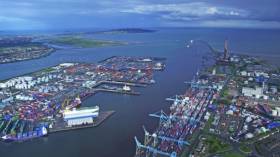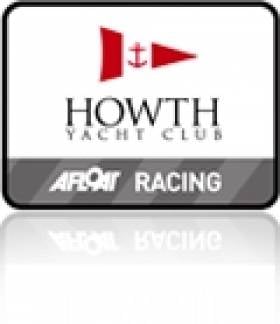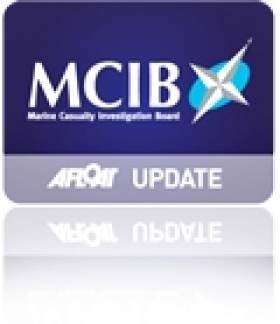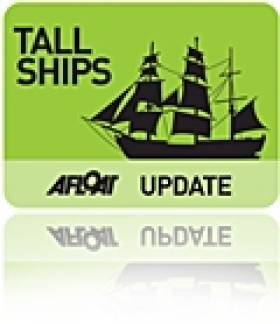Displaying items by tag: Certification
Marine Notice: Training Course Statutory Certification In Ireland
#MarineNotice - Marine Notice No 6 of 2017 from the Department of Transport, Tourism and Sport (DTTAS) advises that anyone undertaking maritime training in Ireland should ensure that any course leading to certification is approved by and complies with the statutory certification issued by the competent authority.
The Minister for Transport, Tourism and Sport is the competent authority for the approval of statutory maritime training in Ireland under both EU and Irish law. The Marine Survey Office of the DTTAS carries out this function on behalf of the minister.
Specifically, IMO STCW courses (including short courses) carried out in Ireland may only be approved by the Minister for Transport, Tourism and Sport. Candidates for seafarer and fisher certification should be aware that the DTTAS will only accept certificates issued by training providers approved by the competent authority for training carried out in Ireland.
EU mutual recognition applies to certificates issued in other EU/EEA states for training approved by and carried out under the conditions set down by the competent authorities in those member states.
Ship owners, fishing vessel owners and those employing seafarers and fishers should ensure that crew whose training was carried out in Ireland hold appropriate certification issued under the authority of the Minister for Transport, Tourism and Sport.
A holder of a certificate that is not valid, and who is serving on a vessel, may adversely affect the certification of that vessel. Such vessels, on inspection, may be subject to enforcement action for non-compliance with statutory requirements.
The DTTAS publishes a full list of approved training providers on the new Seafarers web portal.
Youth Powerboat Courses At Howth Yacht Club In May
#HowthYC - Howth Yacht Club will soon be hosting an ISA-sanctioned powerboating course for beginner youths in mid-May ahead of a certification course at the end of the month.
The 'introduction to powerboat' course runs on the weekend of 18-19 May and is open to all club members aged between 14 and 20.
Members who complete this course would be at an advantage going on to the national powerboat qualification course on the weekend of 25-26 May, which is open for club members aged 16 to 20.
Both courses commence at 9.30am each day.
Application forms are available from the Howth Yacht Club website and must be returned by Thursday 16 May.
#MCIB - The decision to set out in poor weather, coupled with limited safety instruction, led to the tragic death of a Romanian angler on Lough Mask last summer, according to a report by the Marine Casualty Investigation Board (MCIB).
Mircea Ungur drowned after the angling boat he was in capsized in choppy waters brought on by squalling Force 8 winds on the afternoon of 8 May 2011.
Ungur had a tracheostomy tube in his throat resulting from a previous battle against throat cancer, and drowned after taking in water through this tube, the MCIB concluded. It was also found that most of his companions and the guide knew nothing about the tube.
At the time of the incident, Ungur had been on an angling holiday in Co Mayo with five colleagues accompanied by a fishing guide. On the morning of 8 May the group set out from Cappaduff in Tourmakeady on two boats, following a brief discussion about fishing and safe departure from the pier.
Winds were already reaching Force 4-6 when the group departed and sought a sheltered area of the lough to fish. After lunch winds had picked up to Force 8 and the guide signalled for a return to Tourmakeady.
At around 1.5km from the pier at Cappaduff, a wave swamped the leading boat that contained Ungur, a companion and the guide. All three on board, who were wearing buoyancy aids, went into the water.
Ungur was the first taken on board the other boat after some 10 minutes in the water. He was not moving or communicating with the others, and CPR was not administered until the boat reached the shore 20 minutes later. Ungur was pronouced dead just before 3pm.
The report concluded that the group had departed despite reservations among them about the poor weather, which had been correctly forecast that day. There was also little discussion with the anglers about their level of boating experience, the weather, or any disabilities that would affect their safety on the water.
The MCIB recommended that a full safety briefing should be given to all those hiring angling boats. It also urged the enforcement of safety regulations and certification for recreational water craft.
The full report is available to download as a PDF from the MCIB website HERE.
Safety of World's Tall Ships In Question
Safety on the world's 700 sail training tall ships has been called into doubt, Sail World reports.
The concern comes following an investigation into the sinking of Canadian tall ship Concordia off the coast of Brazil last year.
The ship capsized in a squall on 17 February 2010. All 64 passengers and crew spent two days adrift in lifeboats before being rescued.
Investigators from the Transportation Safety Board of Canada concluded last week that no action was taken to prevent capsizing, such as reducing sail or changing course, because the officer-in-charge did not realise the ship was in danger.
The board also learned that the officer-in-charge was able to get his certification without having to familiarise himself with information on the handling and stability of the ship, and found that this lack of a requirement is universal across the world's sail training vessels.
Senior investigator Paulo Ekkebus said this was "a large concern" and called for stricter standards worldwide.
He added: "We’ve not been able to find any country, any flag-state, requiring the study, or for people that they are familiar with this type of information, if it is provided on board the ship."
Sail World has much more on the story HERE.



























































